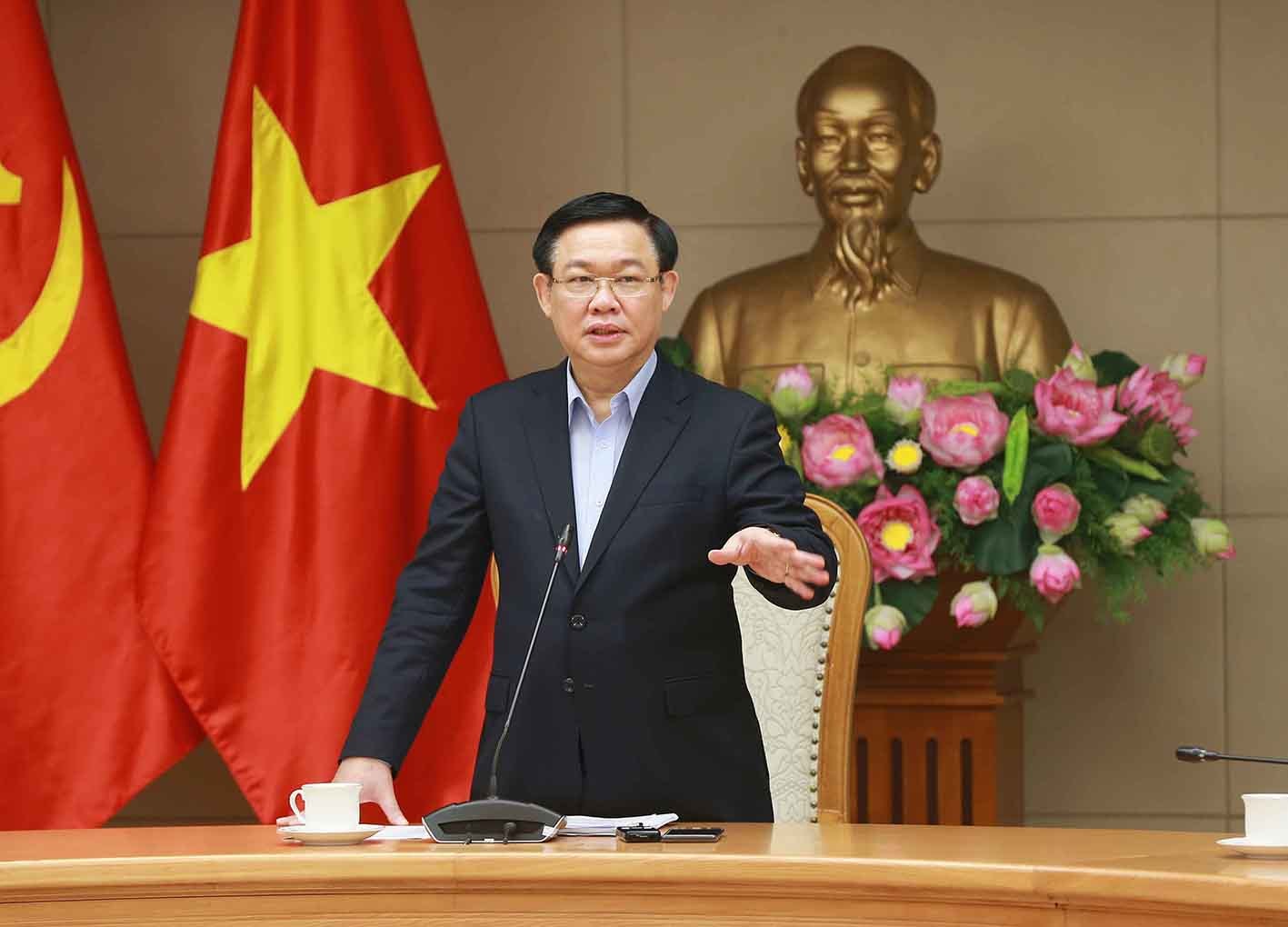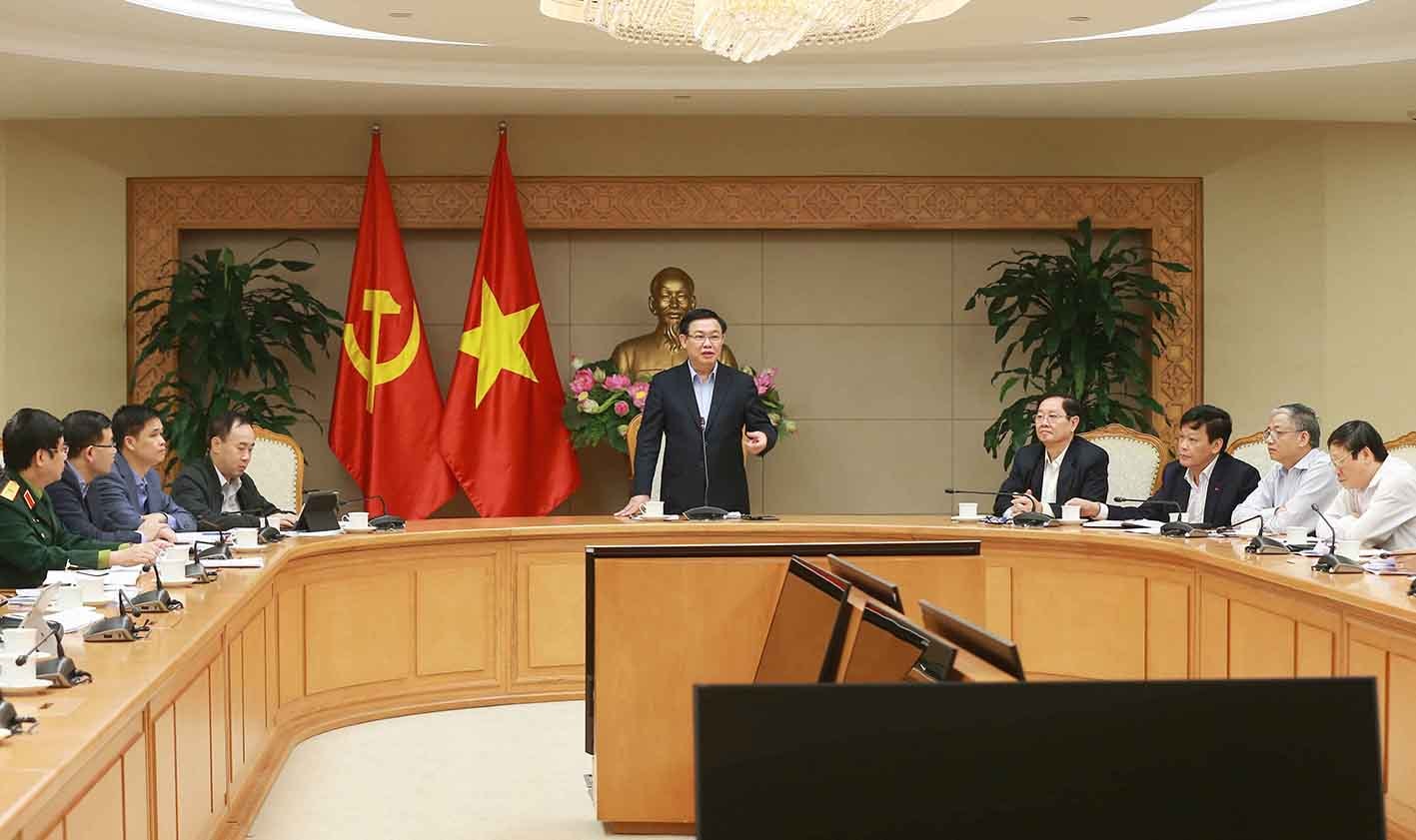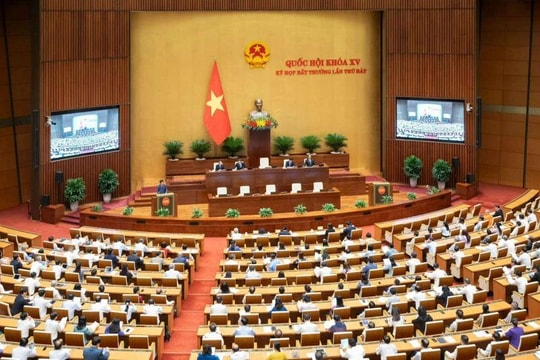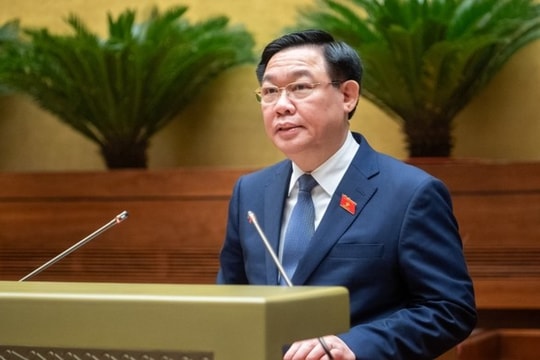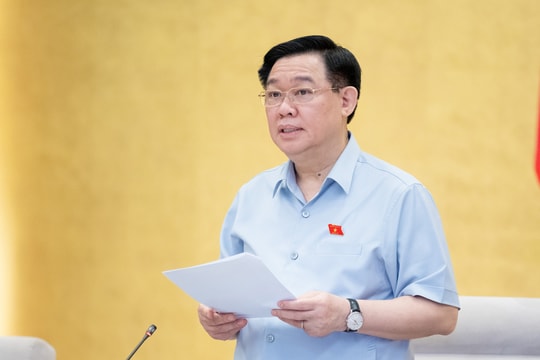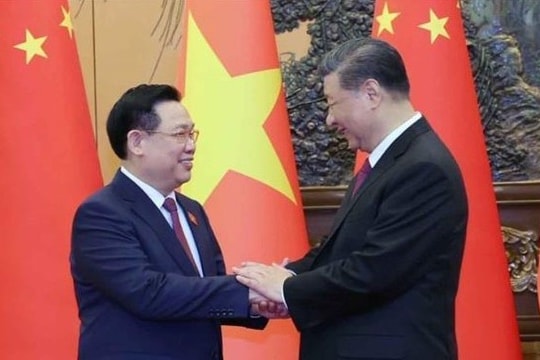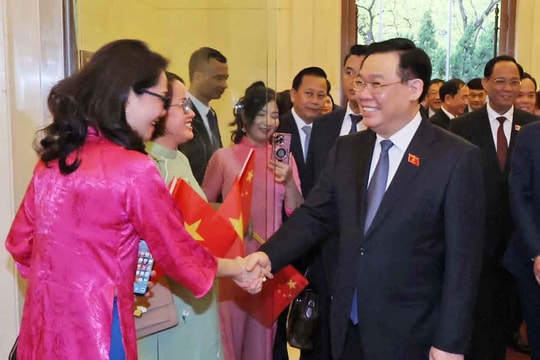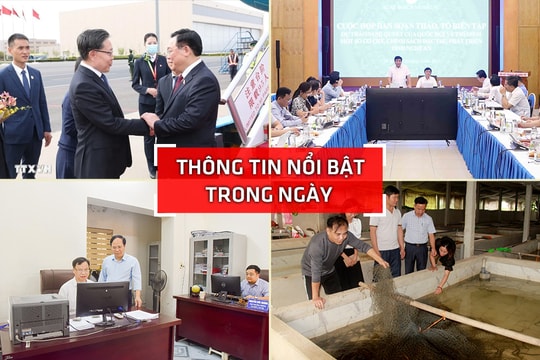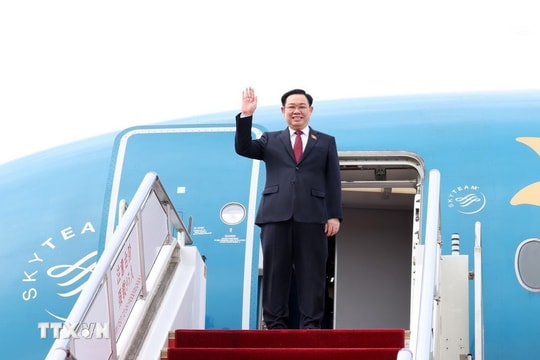Salary reform: Focus on building and approving the Job Position Project
Deputy Prime Minister Vuong Dinh Hue emphasized that the key task to implement salary policy reform is to soon complete and submit to competent authorities for approval the Job Position Project in 2019 on the basis of improving the quality of operations of the apparatus associated with streamlining the payroll.
|
| Deputy Prime Minister Vuong Dinh Hue speaks at the conference. Photo: VGP/Thanh Chung |
This is the first specialized Resolution of the Party Central Committee on salary reform ever, starting from 2021. From now until the end of 2020, the Government will continue to adjust the basic salary increase by 7% each year according to the Resolution of the National Assembly, then from 2021 onwards, it will fundamentally reform the salary policy, which includes the state administrative sector (salary payment according to job position and title, leadership position), in the enterprise sector, it will be implemented equally with the state and non-state enterprises (excluding salaries of representatives of owners and managers).
Based on Resolution No. 27 of the Central Committee and the Government's Action Program to implement this Resolution, Deputy Prime Minister Vuong Dinh Hue requested that this year and in 2020, ministries, branches and localities must prepare an institutional framework to implement reforms, the most important of which is to develop and approve the Project on job positions, titles and positions of leaders in agencies and units of the armed forces. The design of the salary scale system requires the design of the salary scale in general and the salary scale system and tables of equivalent positions in the political system; calculate the transfer of old salaries to new salaries...
“During the preparation of the Project, many issues on salary reform have been clarified and explained specifically, but now they need to be concretized. But the most difficult thing is that we are preparing the foundation for salary reform in the context of preparing to build documents for Party Congresses at all levels, so the sooner this is done, the more room there is for careful discussion,” the Deputy Prime Minister expressed his spirit to the ministries and branches.
Regarding Deputy Prime Minister Vuong Dinh Hue's biggest concern, which is the development of a job position project, the Deputy Prime Minister emphasized the spirit of Resolution 27 that the project must ensure the improvement of the efficiency and effectiveness of the apparatus' operations in conjunction with streamlining the payroll (reducing 2.5% of the payroll each year), and that it is unacceptable to develop and approve a job position project but the payroll still increases, failing to ensure the target.
“In general, in the private sector, a person can be a driver, a secretary, a maid, or do many other jobs. In the public sector, a position that works 1.5 or 2 shifts a day and requires 2 staff is not allowed. The law also allows overtime and bonus payments, so it cannot be applied mechanically,” the Deputy Prime Minister cited the current reality and suggested that the Ministry of Home Affairs inherit previous implementation experiences, select appropriate international experiences, and not mechanically apply them to Vietnam to review and perfect the legal system of job positions and criteria for evaluating civil servants and public employees associated with job positions.
Besides, Deputy Prime Minister Vuong Dinh Hue highly appreciated the Ministry of Health, the Ministry of Labor, Invalids and Social Affairs and Hanoi City for effectively implementing job positions, and requested the Ministry of Home Affairs to research and replicate good practices in other localities, ministries and branches.
|
| Photo: VGP/Thanh Chung |
The Head of the Steering Committee also noted that the Ministry of Home Affairs should proactively coordinate with the Central Organizing Committee to develop leadership positions from the Central to the grassroots level and classify equivalent positions in the political system so that the Politburo can soon submit them to the Central Committee for comments by the end of this year.
Regarding resources to prepare for salary reform, Deputy Prime Minister Vuong Dinh Hue also noted that the Ministry of Finance and localities should focus financial resources on salary reform, including excess revenue from the central and local budgets from 2018-2020 to increase salaries, and not let the situation happen where localities ask to use salary reform resources to spend on other things.
“In addition to streamlining the apparatus and innovating the operations of public service units, there must be specific funding sources to implement salary reform. We cannot let the Central Resolution set out requirements that cannot be implemented in practice or adjust salaries to an insignificant amount that does not meet the expectations of civil servants, public employees and workers,” the Deputy Prime Minister emphasized.

